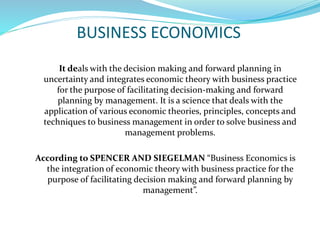A Thorough Analysis into the Worldwide Impact of Business and Economics Policies
A Thorough Analysis into the Worldwide Impact of Business and Economics Policies
Blog Article
Business and Economics 101: Vital Expertise for Aspiring Leaders
In today's swiftly advancing business landscape, striving leaders should cultivate a comprehensive understanding of basic financial principles and tactical frameworks. Grasping ideas such as supply and need, market structures, and competition is not merely scholastic; these elements are critical in shaping effective decision-making and promoting technology.
Recognizing Supply and Need
Supply and demand are essential ideas that consistently underpin the mechanics of any market economic climate. The connection between these 2 pressures establishes the price of goods and services as well as their schedule in the market. Supply describes the quantity of a product that manufacturers are prepared and able to cost numerous rate levels, while demand mirrors the quantity that consumers agree and able to purchase.
When demand increases without a matching rise in supply, rates have a tendency to climb, indicating producers to enhance outcome. Alternatively, if supply outstrips demand, costs might fall, prompting producers to lower result. This dynamic interplay assists to attain market balance, where the quantity supplied matches the quantity demanded at a specific cost factor.

Exploring Market Structures
Market frameworks define the competitive setting in which services run, considerably influencing their rates techniques, outcome degrees, and general profitability. Understanding these structures is critical for striving leaders, as they shape business decisions and market characteristics.
There are four main types of market structures: perfect competition, monopolistic competition, oligopoly, and syndicate. Syndicates exist when a solitary firm manages the market, resulting in the highest possible degree of rates power and possible market ineffectiveness.
Each market framework offers distinct obstacles and possibilities for organizations. Leaders must understand these nuances to effectively position their companies, develop competitive approaches, and reply to market changes. By comprehending the implications of various market structures, aspiring leaders can make educated choices that drive their services toward lasting success and growth in an ever-evolving economic landscape.
Financial Concepts for Leaders
Reliable management in company necessitates a solid understanding of economic concepts, as they underpin critical decision-making and resource allotment. Leaders must realize essential concepts such as money flow monitoring, success evaluation, and economic forecasting. These components are crucial in evaluating an organization's economic health and directing its future instructions.
Cash money circulation monitoring is especially crucial; it makes sure that the company preserves sufficient liquidity to fulfill its commitments while going after development chances. Assessing success permits leaders to determine which items or solutions generate the greatest returns, enabling educated investment choices. Additionally, monetary projecting aids prepare for future revenues and costs, facilitating even more precise budgeting and source allotment.
Moreover, comprehending economic statements-- read what he said such as annual report, earnings statements, and cash circulation declarations-- outfits leaders with the understandings needed to make informed options. This understanding promotes liability and transparency, improving stakeholder trust fund.
In today's vibrant organization environment, leaders need to be proficient at analyzing monetary data to react promptly to market modifications. Inevitably, a solid understanding of financial principles equips leaders to drive official source their companies toward lasting success while efficiently handling threats and resources.
The Duty of Competition
Comprehending the function of competitors is important for any type of service intending to flourish in a saturated market. Competitors drives technology and efficiency, engaging businesses to improve their products and solutions continuously.
Moreover, competition can result in better pricing techniques. As companies strive for market share, they are incentivized to supply affordable rates, profiting consumers while difficult organizations to handle prices properly. This dynamic fosters a society of regular renovation, pressing organizations to enhance operations and improve value propositions.
In addition, competition can promote market growth by urging new participants. New companies typically present fresh ideas and strategies, additionally enhancing the general market landscape. Companies must also be vigilant; excessive competition can lead to market saturation, lowering earnings for all gamers entailed.
Ultimately, understanding and browsing competitors is vital for leaders. By recognizing its complex duty, aspiring leaders can make educated choices that position their companies for long-term success in an ever-evolving industry.
Strategic Decision-Making
In the realm of business, calculated decision-making is fundamental to adjusting and achieving long-lasting goals to transforming circumstances. This procedure includes reviewing various options and selecting one of the most reliable strategy Go Here that straightens with the organization's vision and objectives. Effective calculated decision-making requires a thorough understanding of both outside and internal atmospheres, including market patterns, competitive characteristics, and business capabilities.
Leaders must collect relevant info, examine it seriously, and projection potential outcomes. In addition, evaluating risks connected with each alternative enables leaders to develop and anticipate obstacles contingency plans.
Ultimately, successful critical decision-making equips organizations to navigate intricacies, take advantage of chances, and react proactively to dangers. By cultivating a society that values informed decision-making, organizations place themselves to innovate and preserve an one-upmanship in an ever-evolving organization landscape. Ambitious leaders need to develop these abilities, as their capability to make sound calculated decisions will significantly affect their companies' success and sustainability.

Final Thought
In conclusion, a solid understanding of organization and business economics basics is crucial for striving leaders. Expertise of supply and demand, market frameworks, and monetary principles fosters informed decision-making and efficient source appropriation. Recognizing the role of competitors more enhances strategic thinking, allowing leaders to browse complicated market characteristics. Ultimately, this fundamental understanding furnishes future leaders to innovate and straighten organizational strategies with advancing market conditions, leading the way for sustained success and success.
Understanding these concepts is crucial for striving company leaders, as they create the foundation for effective decision-making in pricing, source allocation, and market technique. Comprehending supply and need gears up leaders to navigate the intricacies of market changes and customer actions.
Monopolies exist when a solitary company regulates the market, resulting in the highest possible degree of prices power and potential market inadequacies.
By grasping the ramifications of various market frameworks, striving leaders can make enlightened choices that drive their businesses towards sustainable success and growth in an ever-evolving economic landscape.
Understanding the role of competition more boosts critical thinking, allowing leaders to navigate complex market dynamics.
Report this page